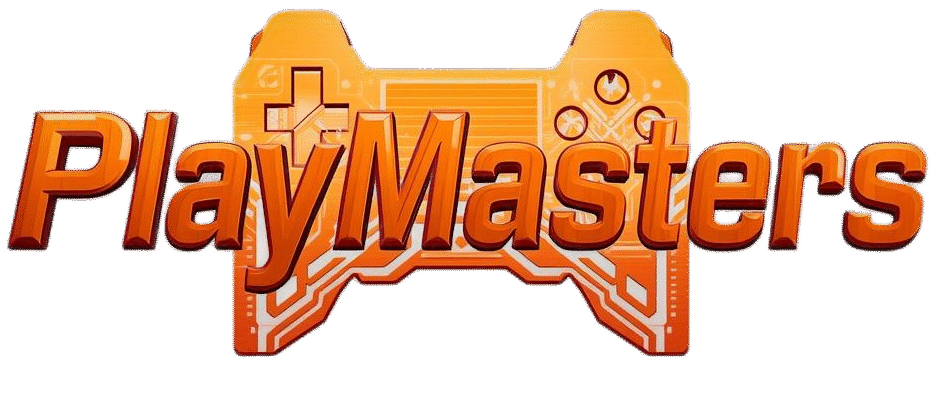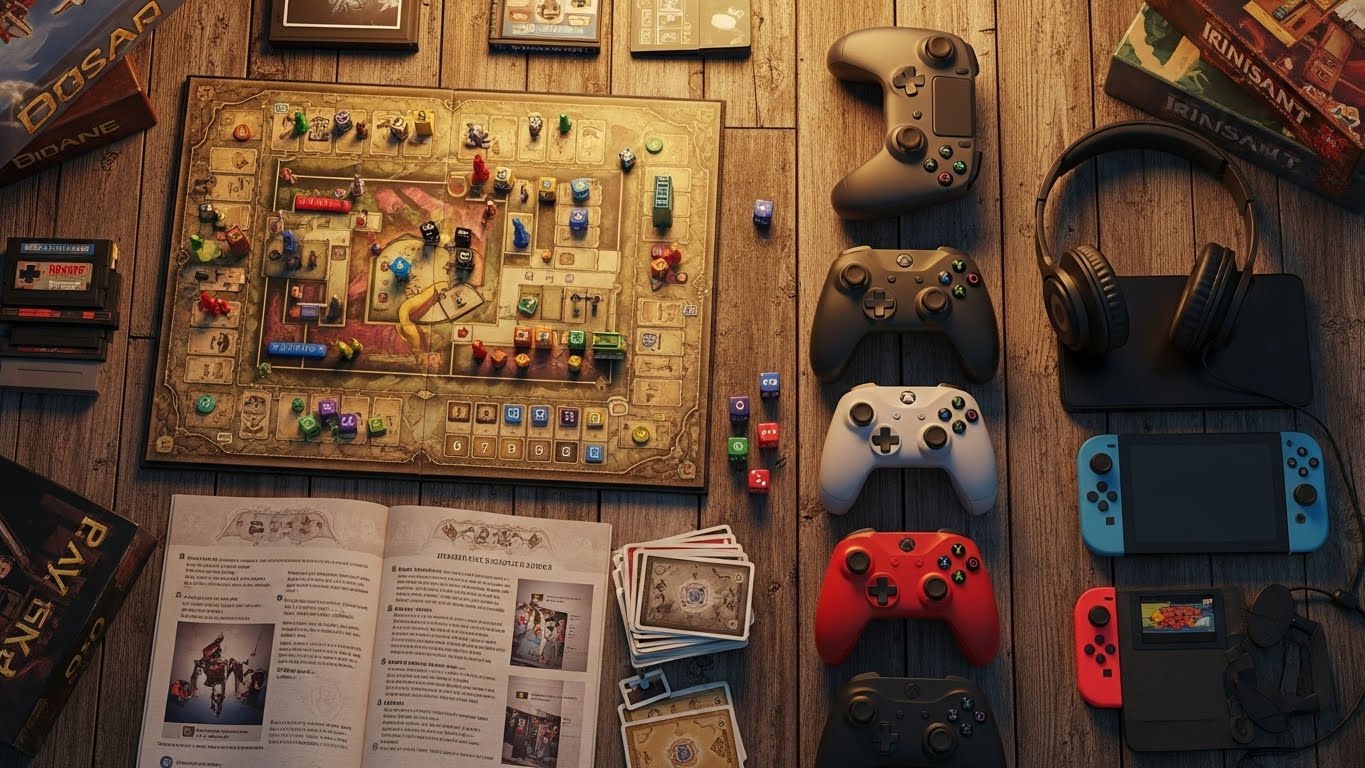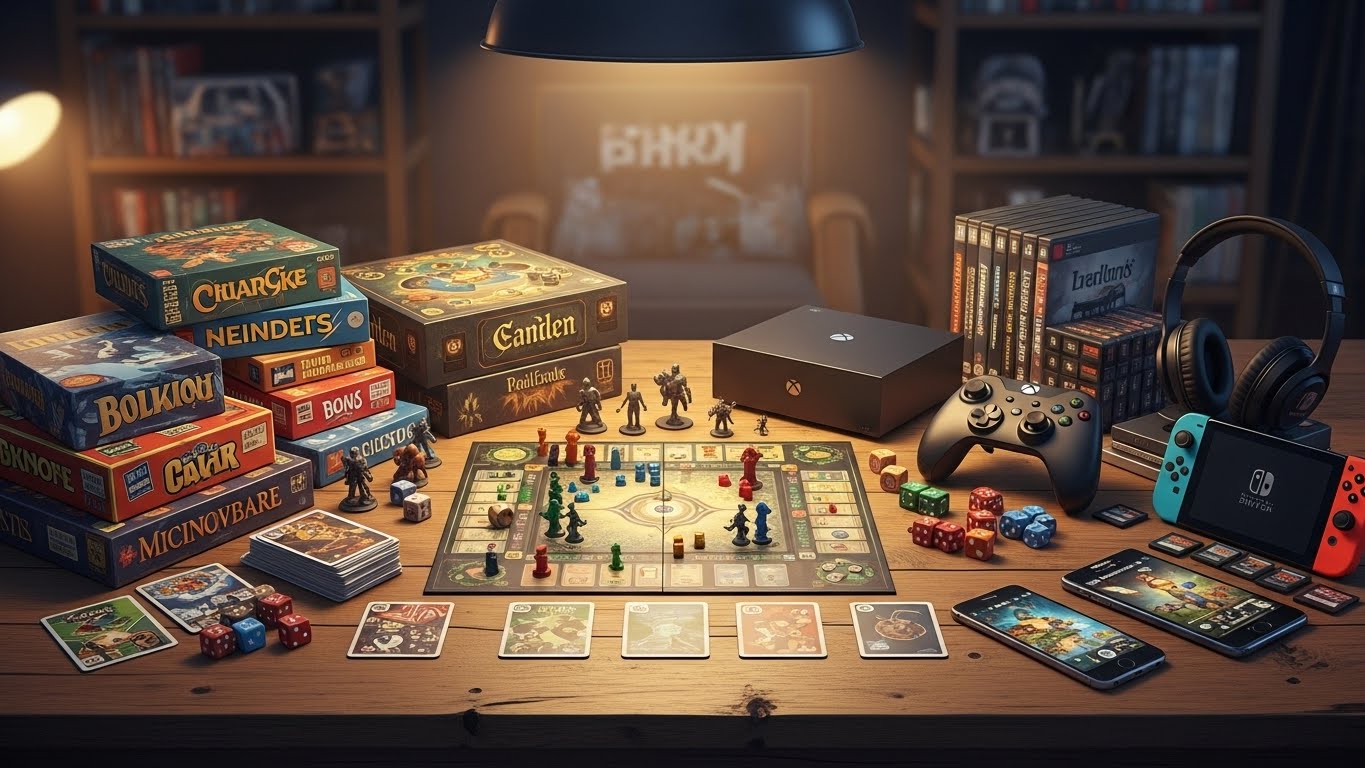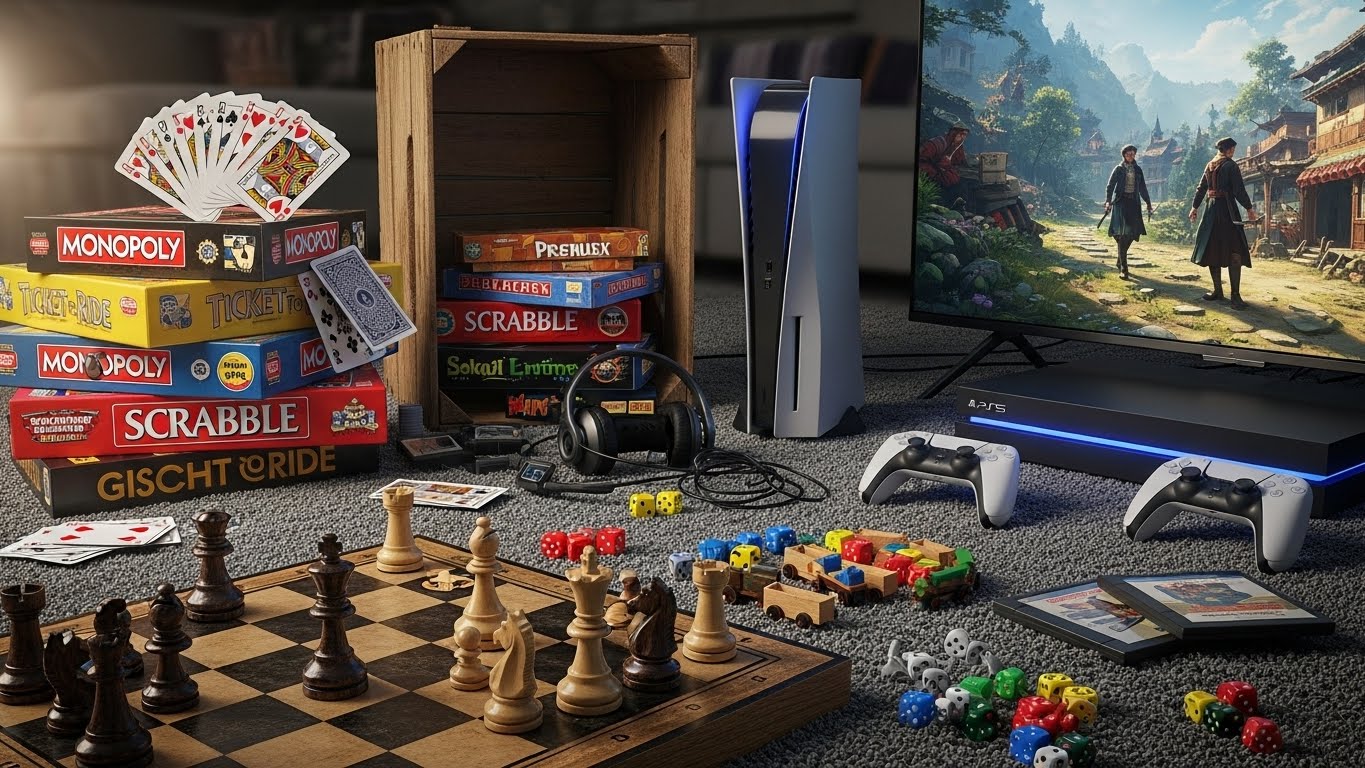Games have been a part of human civilization since the dawn of time. From ancient board games carved into stone to the latest digital adventures powered by cutting-edge graphics, the concept of play has always fascinated the human mind. Games represent more than mere entertainment—they are reflections of culture, creativity, competition, and community. Over the years, games have evolved from simple recreational activities into vast ecosystems influencing art, technology, education, and even psychology.
In this blog, we will dive deep into the universe of games—exploring their history, evolution, impact, and the many ways they continue to shape our lives in the modern world.
The Origins of Games: From Ancient Times to Modern Play
Long before video games or digital consoles existed, games were already central to human life. Archaeological evidence shows that even the earliest civilizations enjoyed forms of structured play. Ancient Egypt had games like Senet, believed to date back over 5,000 years. Similarly, Mesopotamians played the Royal Game of Ur, one of the oldest known board games. These games were not only a source of amusement but often had religious, social, or strategic significance.
In Greece, athletic games such as the Olympics were celebrated to honor the gods. In China, the game of Go, invented thousands of years ago, became a symbol of strategic thinking and intellectual prowess. In India, the ancient game of Chaturanga eventually evolved into chess, one of the world’s most intellectually demanding and globally beloved games.
These early games laid the foundation for all forms of play that came after. They taught humanity about strategy, fairness, risk, and reward. More importantly, they united communities, allowing people to connect through competition and cooperation.
The Birth of Modern Gaming
As time progressed, games adapted to technological and social changes. The invention of printing allowed for the mass production of playing cards and board games. During the 19th century, companies like Parker Brothers and Milton Bradley introduced classic games such as Monopoly, The Game of Life, and Clue. These became household staples, bringing families together for evenings of laughter and rivalry.
The 20th century witnessed the true revolution of gaming—the birth of electronic entertainment. The invention of computers and arcade machines opened a new chapter in human play. Games like Pong, Pac-Man, and Space Invaders introduced players to the digital world, creating experiences unlike anything before. The simplicity of these early titles may seem primitive today, but they were revolutionary in their ability to immerse players in interactive experiences.
The Rise of Video Games
The 1980s and 1990s were defining decades for video games. Iconic companies such as Nintendo, Sega, and Atari became pioneers of an industry that would soon dominate global entertainment. Characters like Mario, Sonic, and Link became cultural icons, representing not just games but entire generations of childhoods.
Home consoles transformed living rooms into virtual playgrounds. The Nintendo Entertainment System (NES), Sega Genesis, and later the PlayStation and Xbox opened doors to new possibilities. Developers experimented with storytelling, world-building, and gameplay mechanics. Titles like The Legend of Zelda, Final Fantasy, and Metal Gear Solid showed that games could tell emotional and complex stories rivaling those of films and literature.
The gaming community grew rapidly, leading to competitive gaming tournaments, fan conventions, and a new type of celebrity—the professional gamer. By the time the 2000s arrived, video games were no longer just a pastime; they had become a dominant force in global entertainment, surpassing even the movie industry in revenue.
The Age of Online and Multiplayer Gaming
The rise of the internet changed everything about how we play. No longer were games confined to local experiences; they became social universes. The concept of online multiplayer introduced a new form of interaction—players could now compete or cooperate with people across the world.
Massively Multiplayer Online Role-Playing Games (MMORPGs) like World of Warcraft and Runescape allowed millions of players to explore vast digital worlds together. Online shooters such as Counter-Strike and Call of Duty turned gaming into an international sport, paving the way for what we now call eSports.
Online play also brought a new sense of community. Clans, guilds, and teams formed strong bonds through shared victories and losses. Friendships developed across borders, languages, and cultures. Games became digital meeting places, where people from different parts of the world could connect through shared experiences.
The Explosion of Mobile and Casual Gaming
The arrival of smartphones in the late 2000s reshaped gaming once again. Suddenly, games were not confined to consoles or PCs—they were available to everyone, everywhere. Titles like Angry Birds, Candy Crush Saga, and Clash of Clans became global phenomena, attracting audiences who had never considered themselves gamers before.
Mobile gaming democratized play. It made gaming accessible to all ages, genders, and backgrounds. People played during commutes, lunch breaks, or while waiting in line. The simplicity and convenience of mobile games turned them into a multibillion-dollar industry.
While some critics viewed mobile games as less sophisticated, their impact was undeniable. They expanded the gaming audience and proved that play could thrive outside traditional platforms.
The Power of Storytelling in Games
One of the most fascinating developments in modern gaming is the art of storytelling. Once dismissed as mere entertainment, games have now become powerful narrative experiences. Titles like The Last of Us, Red Dead Redemption 2, and Life is Strange blend cinematic storytelling with interactive gameplay, creating emotional connections between players and characters.
In these games, choices matter. Players are not just spectators; they are participants shaping the story’s outcome. This interactive storytelling gives games a unique edge over other forms of media. The emotional investment players feel when their decisions affect the fate of beloved characters is unparalleled.
Developers increasingly view games as vehicles for exploring complex themes such as morality, identity, grief, and hope. Games are no longer escapism alone—they are mirrors reflecting the human experience.
The Social and Psychological Impact of Gaming
Gaming’s influence extends far beyond entertainment. Studies show that games can improve cognitive skills, problem-solving abilities, and teamwork. They can also relieve stress, boost creativity, and even help in education.
Educational games teach math, science, and history in interactive and engaging ways. Simulation games like SimCity or The Sims teach planning, resource management, and social interaction. Strategy games encourage critical thinking and adaptability.
However, gaming also has challenges. Issues like addiction, toxic online behavior, and excessive screen time have raised concerns. Moderation and awareness are essential to ensuring that gaming remains a healthy and positive activity. Parents, educators, and developers must work together to promote responsible gaming habits.
Despite these challenges, the positive potential of games cannot be ignored. Many mental health professionals now use games in therapy to help patients manage anxiety, depression, and trauma. The immersive nature of gaming can provide a safe environment for exploration and healing.
The Rise of eSports and Competitive Gaming
What was once a hobby has now become a legitimate profession. eSports has transformed gaming into a spectator sport watched by millions around the world. Professional players train rigorously, compete in massive tournaments, and earn sponsorships from global brands.
Games like League of Legends, Dota 2, and Valorant have become staples of competitive gaming. International tournaments fill arenas, and millions tune in to watch live broadcasts. The skill, strategy, and teamwork displayed by professional gamers rival those of traditional athletes.
eSports has also created career opportunities beyond playing—commentators, analysts, coaches, and event organizers all contribute to this growing ecosystem. For many young gamers, becoming a professional player is now as aspirational as becoming a footballer or musician.
The Artistic Side of Games
Beyond mechanics and competition, games are also a powerful art form. Every game is a combination of design, music, writing, and visual art. Developers craft intricate worlds filled with emotion, imagination, and creativity.
Indie developers, in particular, have pushed artistic boundaries. Games like Journey, Celeste, and Hollow Knight show how beauty and simplicity can convey profound emotion. These games often focus on storytelling, atmosphere, and artistic expression rather than flashy graphics or high budgets.
The recognition of games as art is growing. Museums now feature gaming exhibits, and critics discuss games alongside literature and cinema. They are not just toys or diversions—they are modern masterpieces of human creativity.
Virtual Reality and the Future of Immersive Gaming
The next frontier in gaming is immersion. Virtual Reality (VR) and Augmented Reality (AR) are revolutionizing how players experience digital worlds. With VR headsets, players can step directly into games, interacting with environments in lifelike ways.
Titles like Beat Saber, Half-Life: Alyx, and No Man’s Sky VR showcase the potential of immersive play. Meanwhile, AR games like Pokémon Go blend the real world with the virtual, encouraging players to explore their surroundings in new and exciting ways.
As technology advances, the line between reality and virtuality continues to blur. Haptic feedback, realistic graphics, and AI-driven characters make experiences more believable and emotional. The future promises even greater integration of the digital and physical worlds.
The Community and Culture of Gaming
Gaming has built one of the largest and most diverse communities in the world. Online platforms allow players to share their achievements, create fan art, stream gameplay, and build friendships. Streaming platforms have turned gaming into a global social phenomenon.
Gamers celebrate their passion through conventions, cosplay, and fan events. Communities form around favorite games, and creativity flourishes in fan-made content, mods, and stories. This shared love of gaming has created a sense of belonging for millions of people worldwide.
Gaming culture also influences fashion, music, and film. Iconic game soundtracks become cultural anthems, while game-inspired movies and TV shows bring digital worlds to mainstream audiences. The impact of gaming culture on modern society is undeniable and ever-expanding.
The Role of Artificial Intelligence in Gaming
Artificial Intelligence (AI) plays a vital role in the evolution of games. From realistic enemy behaviors to dynamic storytelling, AI enhances every aspect of gameplay.
Modern games use AI to create adaptive worlds that respond to player actions. Non-player characters (NPCs) can now learn, adapt, and react intelligently, making the experience more immersive. In strategy games, AI opponents analyze player moves and develop new tactics, offering endless replayability.
Developers are also exploring AI-generated content—procedurally created worlds, dynamic quests, and even AI-assisted art and music. This technology allows for more creativity, personalization, and unpredictability in gaming experiences.
The Future of Games: Boundless Possibilities
Looking ahead, the future of gaming seems limitless. As technology continues to advance, games will become more realistic, immersive, and interconnected. Cloud gaming will eliminate the need for expensive hardware, allowing anyone with an internet connection to play high-end titles.
Artificial intelligence will make games smarter, while augmented and virtual reality will make them more engaging. The boundaries between movies, art, and games will continue to fade, giving rise to entirely new forms of interactive storytelling.
Moreover, gaming will continue to bring people together. Whether through online communities, eSports tournaments, or shared virtual worlds, the essence of play—connection, creativity, and joy—will remain the heart of gaming.
Conclusion: Why Games Matter
Games are more than a pastime; they are an essential part of human expression. They teach us, challenge us, entertain us, and connect us. From ancient stones to virtual worlds, the journey of gaming mirrors the evolution of humanity itself.
Every time we play—whether we roll a dice, jump into a virtual adventure, or compete on a global stage—we participate in something timeless. Games remind us of the joy of discovery, the thrill of competition, and the power of imagination.
As long as humans continue to dream, create, and play, games will remain a reflection of our collective spirit—a bridge between reality and fantasy, between people and possibilities.




